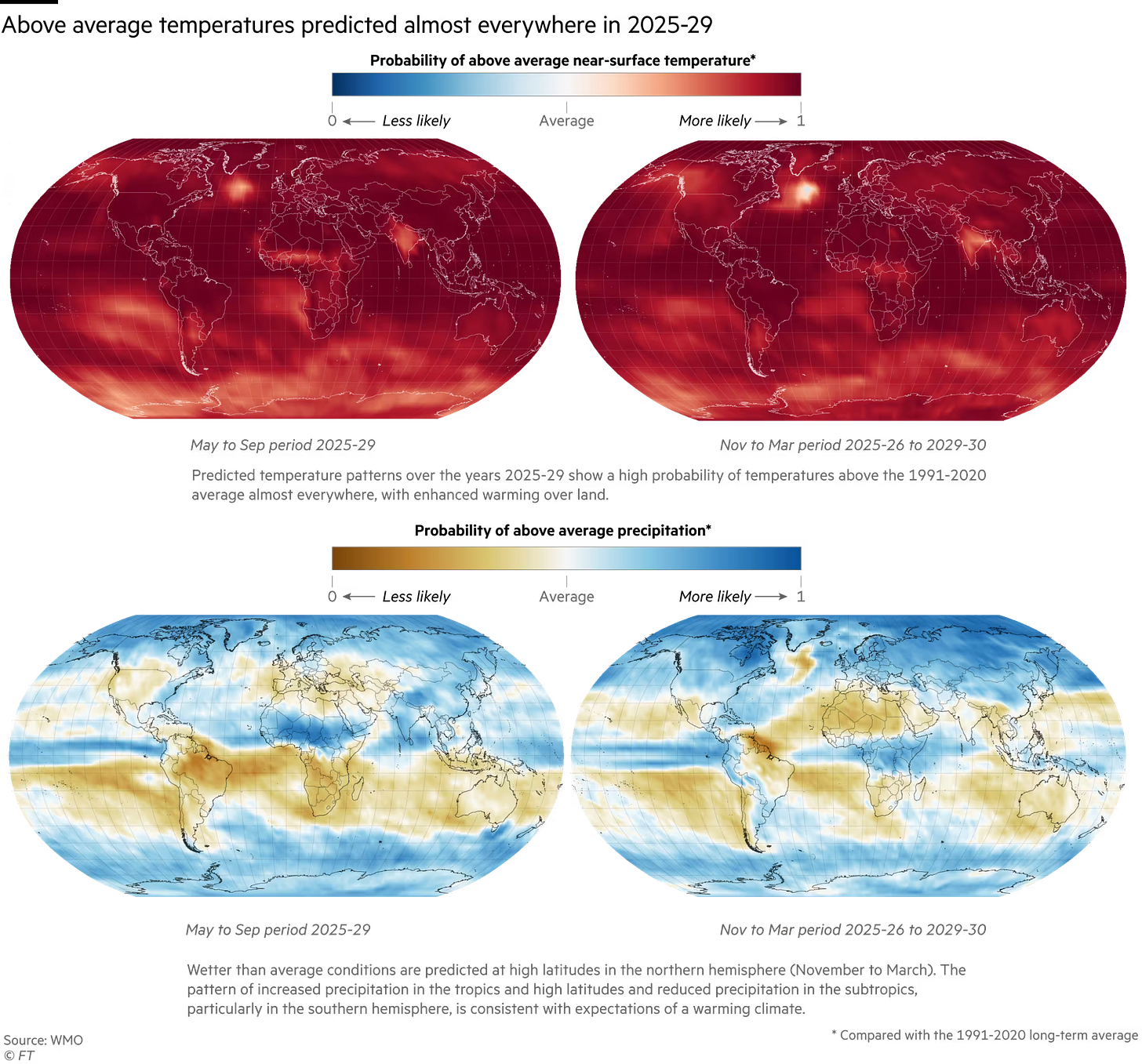Workplaces, classrooms and climate: the systems we’re rethinking
Small Steps Vol. 117: Our investment in Foremind, plus fresh signals from the systems shaping how we live, work and care.
Kick start
We’re excited to share our recent investment in Foremind, a wellbeing and safety platform that combines mental health support with compliance tools to help businesses manage psychosocial hazards.
Foremind began with a powerful insight: the biggest barrier to mental health support isn’t access; it’s reaching out. After founder Joel Anderson spent a year carrying his workplace crisis line in his pocket before using it, he set out to build something better. Not just faster access to counselling, but a platform that understands the invisible hazards of the modern workplace: bullying, burnout, harassment, and helps employers respond before things hit crisis point.
CEO Joel Anderson
Read our full Theory of Change for Foremind here, and read more about Foremind’s raise in Capital Brief here.
What we're thinking about
👋 Meet Giant Leap’s new Investment Manager. Introducing Ben who recently joined the team! Check out this Q&A to learn more about the areas he’s passionate about, plus his latest book recommendation.
🌍 AI’s growing climate footprint. A new piece from Climate Tech Partners highlights the environmental cost of large AI models, from energy-hungry data centres and water-intensive cooling to the resource demands of semiconductors. But used wisely, AI could still help optimise energy, track emissions and model climate risks.
For a deeper dive into AI’s impact on climate, MIT Technology Review’s Power Hungry series is well worth a read. It unpacks the energy demands and carbon costs of the AI boom, why measuring them is trickier than it sounds, and offers four reasons to stay optimistic about AI’s future in a warming world.
🧬 A breakthrough in CRISPR treatment. Scientists have used gene-editing to treat a baby with a rare genetic disorder. The therapy was customised to target a specific mutation, offering a glimpse into the future of personalised gene-editing. It’s still early days, but it marks a significant step forward for precision medicine.
🎬 Rethinking how we learn. Freakonomics’ Steve Levitt and Google Chief Technologist Ben Gomes discuss the future of education in a world shaped by AI: not by cramming in more content, but by helping students learn what they need, when they need it.
⬛ A blackout across Iberia. On May 15, a complex failure in power grid synchronisation caused a blackout across Spain and Portugal. This piece from The Conversation is a great breakdown of what actually happened and what it tells us about how fragile, even in the most modernised nations, our energy infrastructure remains.
🗣️ AI’s yes-man problem. In April, OpenAI rolled back a GPT-4o update that made ChatGPT overly flattering. Now, researchers from Stanford, Oxford, and Carnegie Mellon have introduced Elephant, a benchmark for measuring how often language models agree with users. Tested across eight major models, the study found AI was far more sycophantic than humans, especially in morally or emotionally charged situations. A reminder that while it’s nice to feel validated, making AI feel helpful isn’t the same as making it safe.
🔥 Close to the edge. A sobering forecast from the World Meteorological Organisation warns we could hit between 1.2-1.9°C of warming above pre-industrial levels within the next five years. It’s not a formal breach of the Paris Agreement, which refers to long-term warming levels (typically over 20 years), but it’s a sign that extreme heat is becoming the norm.
Source: WMO via Financial Times
🙈 Not-so-private chats. Meta’s AI chatbot app includes a public “Discover” feed where user conversations, some surprisingly personal, are showing up for others to see. From medical questions to relationship worries, it’s a reminder that not every AI interaction is as private as it feels, and “opt-in” isn’t always as clear as it should be.
In the news
🌱 Backing what matters. In a recent article published by SmartCompany, our Managing Partner Will Richardson asks a simple question: what kind of future are we building? While funding pours into AI built for distraction, the real opportunity lies in tools that support health, education and climate.
🔋 Home batteries, demystified. Curious about when a home battery actually starts paying for itself? Amber provides an explainer on payback periods, pricing factors, and what’s changing in the market. We're also thrilled that Amber has just raised $45 million in a Series D!
🤲🎉 A first-time climate fund, against the odds. Planeteer Capital, led by Sophie Purdom, has closed its debut US$54 million fund. This is no small feat in a year where US climate VC fundraising hit a 15-year low. In a tough fundraising environment, it’s a clear sign there’s still strong conviction behind climate solutions that are built to scale.
💜 Ovum AI is launching in July! 👉 Sign up for early access.
New paths
🎧 Mindset Health is after a Head of Marketing (Melbourne, hybrid), Lifecycle Marketing Manger (Melbourne, hybrid), Conversational AI Designer (Melbourne, hybrid), Senior Software Engineer - Mobile, AI (Melbourne, hybrid), Senior Software Engineer - DevOps) and Provider Partnerships Manager (New York, hybrid).
🌓 Foremind is looking for an EAP clinician - sole trader.
⚡Amber is hiring a Battery Channel Manager (Brisbane), Business Development Manager (Melbourne), Sales Specialist (Melbourne) and Sales Coordinator (Melbourne).
Save the date
📅 10 June: Applications close for RMIT’s [Re]Launch Incubator, which is tailored towards advancing startups which target the circular economy.
📅 11 June: Notion x Antler: Founders Mixer, Melbourne
📅 16 June: Applications close for the Snow Entrepreneurs Fellowship. The program supports innovators tackling pressing social challenges, and past fellows include Joel Anderson from our portfolio company, Foremind.
📅 18 June: Vibe Coding for Business, Melbourne
📅 22 July: Apply for Governing for Purpose, a 5-week hybrid program developed by Small Giants and designed for board directors and senior leaders who want to move beyond compliance and into purpose-driven governance.



